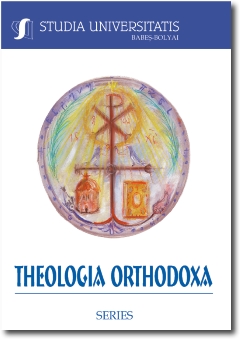FILIPENI 2,6-7A ÎN VERSIUNILE ROMÂNEŞTI ALE SFINTEI SCRIPTURI, CU O SCURTĂ PRIVIRE ASUPRA CONTROVERSELOR TEOLOGICE ALE SECOLULUI AL IV-LEA
PHILIPPIANS 2.6-7A IN THE ROMANIAN VERSIONS OF THE HOLY SCRIPTURE, WITH A BRIEF LOOK AT THE THEOLOGICAL CONTROVERSIES OF THE FOURTH CENTURY
Author(s): Ovidiu SferleaSubject(s): Christian Theology and Religion
Published by: Studia Universitatis Babes-Bolyai
Keywords: Philippians; harpagmos; Cornilescu's version of the Holy Scripture; Patristic Exegesis.
Summary/Abstract: Philippians 2.6-7a in the Romanian Versions of the Holy Scripture, with a Brief Look at the Theological Controversies of the Fourth Century. Philippians 2.6-7a has long been recognized as one of the most enigmatic passages of the New Testament. I propose here an analysis of the Romanian translations of this text, suggesting that it was first made fully understandable by Dumitru Cornilescu's version (1921), followed by the translation of Grigore Pişculescu and Radu Vasile in 1936. But the new Cornilescu version (1924) brought some significant changes likely to arouse in the conscience of the Orthodox the memory of the fourth century theological controversies. I believe it is possible to read the translations proposed by Pişculescu-Radu (1936), by patriarch Nicodim Munteanu (1944) and, perhaps, by Metropolitan Bartolomeu Anania (2001) as a kind of reaction to the new Cornilescu version (1924). This reaction was perhaps due to the presence of a specific religious challenge (Jehovah's Witnesses) which could exploit Phil. 2.6-7a to make anti-Trinitarian claims. Finally, I look briefly at the patristic appeal to this text in the fourth-century Trinitarian controversies.
Journal: Studia Universitatis Babes-Bolyai - Theologia Orthodoxa
- Issue Year: LVI/2011
- Issue No: 2
- Page Range: 15-24
- Page Count: 10
- Language: Romanian

